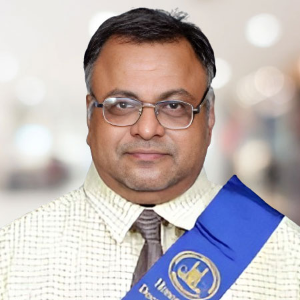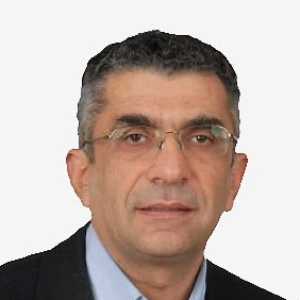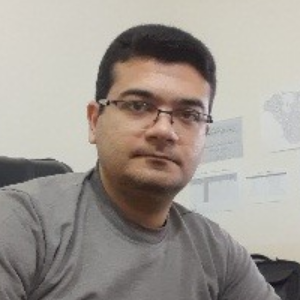Vijayan Gurumurthy Iyer, Bihar Institute of Public Administration & Rural Development, India
Prediction and Assessment of Environmental Health Impacts on the Plant Science and Molecular Biology (PSMB) environment are discussed . The EHIA process is to protect the environmental health. Three of the significant terms while complying with the requirements of PSMB process ar [....] » Read More








Title : Eternal ganga riverine ecosystem: A marvel of self-purification of water
Ashok Chandra Shukla, Independent Scholar, India
Ganga is the life line of Indo-Gangetic Plains. It's water is known for purity and spirituality and can be stored for long periods without getting stale or polluted. Ganga water is used in various religious rituals from birth of a child to demise, besides serving as a source [....] » Read More
Title : Insects present in the floral environments of Parthenium hysterophorus L., alfalfa and alfalfa in competition with Parthenium hystophorus L.
Alejandro Alviter Aguilar, Estudiante, Mexico
Coevolution makes it easier for the insect to obtain food sources from plants such as: nectar, pollen, sap and vegetative structures. As well as catching their prey and finding mates. The plant benefits from the insect with the pollination process. The type of insect visitation i [....] » Read More
Title : Investigating the biological roles of sinigrin hydrolysis products on insect herbivory in Brassicaceae
Sheenam Faiz, CSIR-Indian Institute of Integrative Medicine, India
The glucosinolate-myrosinase system is an important defence mechanism in the Brassicaceae family, producing hydrolysis products such as isothiocyanates and nitriles, which play a significant role in insect-plant interactions. However, the biological function of epithionitriles re [....] » Read More
Title : Biotechnological approaches for enhancing fenugreek germination and secondary metabolite production
Kumar Vimal, IIMT University Meerut, India
Fenugreek (Trigonella foenum-graecum), a medicinally and nutritionally important leguminous plant, is widely recognized for its health-promoting bioactive compounds, including alkaloids, flavonoids, saponins, and polyphenols. These secondary metabolites contribute to its pharmaco [....] » Read More
Title : Phytochemical composition of Lagenaria siceraria fruits from KwaZulu-Natal and Limpopo, South Africa
Lungelo Given Buthelezi, University of Zululand, South Africa
Lagenaria siceraria (Molina) Standley is a food and medicinal source with anti-proliferative, anti- fertility, anti- HIV and anti-cancerous properties. The current study investigated the phytochemical constituents of L. siceraria fruits using gas chromatography/mass spectrometry [....] » Read More
Title : The inoculation with Mesorhizobium sp. improves considerably the growth of Astragalus armatus under lead-stress
Alami soufiane, Mohammed V University in Rabat, Morocco
The study investigates the potential of Mesorhizobium sp. to enhance the growth of Astragalus armatus under lead stress, a significant environmental challenge due to heavy metal contamination. Lead pollution adversely affects plant health and soil quality, necessitating innovativ [....] » Read More
Title : A study on the influence of salicylic acid on sub mergence stress recovery of selected rice cultivars grown in Kebbi state north west Nigeria
Jaafar Umar, Federal University Birnin Kebbi, Nigeria
Submergence stress in plants refers to the physiological and biochemical challenges that occur when plants are partially or fully submerged in water. This type of stress primarily affects plants in flood-prone areas or regions with heavy rainfall, where oxygen availability and ot [....] » Read More
Title : DNA sequence of geographical diversity of fungal endophytes: Azadirachta indica (Neem)
Madison Marshall, Bowie State University, United States
Endophytes play a significant role in promoting plant growth and enhance plants’ resistance to diseases, pests, and environmental stresses. Host plants provide an environment with sufficient water and nutrients for endophyte establishment. Endophytes have received much atte [....] » Read More
Title : Are fast growth and drought tolerance two opposed properties in conifers? Scots pine case
Maria Rosario, SLU, Sweden
Genetic degradation is a problem for the ecosystem, both ecologically and economically. The Swedish Forest is the outcome of a combination of natural regeneration and mainly human-driven planting with unenhanced and enhanced (breed) seeds from both Swedish and foreign origin. Lit [....] » Read More
Title : Abundance of aero-algal allergens and public health hazards in Pandu river ecosystem
Neeraj Shukla, C.S.J.M. University, India
Algae are ubiquitous and omnipresent organisms growing profusely in varied environments. Airborne algae remain viable in the atmosphere. Allergenic algae are dispersed effectively by air in dried condition. Dispersed algal allergens cause either contact skin or respiratory allerg [....] » Read More
Title : A highly efficient genetic transformation system for broccoli breeding and improvement
Zhansheng Li, Chinese Academy of Agricultural Sciences, China
Agrobacterium-mediated genetic transformation has been widely used for the identification of functional genes and regulatory and developmental mechanisms in plants. However, there are still some problems of low genetic transformation efficiency and high genotype dependence in cru [....] » Read More